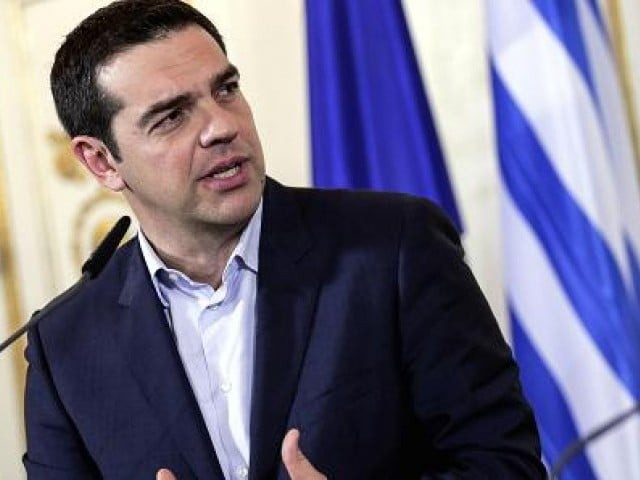Greece must enact raft of reforms to unlock aid
Tsipras says party must avoid splits, not repeat mistakes

Greek Prime Minister Alexis Tsipras. PHOTO: AFP
Speaking to lawmakers of his Syriza party on the day a new parliament was sworn in, the premier said he aimed to complete the first review of a 86 billion euro bailout agreed in August as soon as possible so that Athens could open negotiations with its euro zone partners on debt relief.
To achieve that, Greece is required to enact a swathe of reforms of taxation, pensions, healthcare, the financial sector and public services by Nov 15 to unlock the next tranche of aid and receive help in recapitalising its stricken banks.
“Implementing the bailout is not going to be easy. But we are obliged to make these decisions although we don’t like them,” Tsipras said. “It’s necessary, in order to exit this system of surveillance and immediately start the discussion on the debt issue.
“Our main target is to exit this system of supervision, and regain market access. But a necessary condition for that is to return to growth,” he added.
Tsipras performed a spectacular U-turn in July after calling a referendum to reject austerity terms for a bailout, only to accept more stringent conditions after Greece was forced to shut its banks, ration cash and impose capital controls.
Tsipras said Syriza, which still spans from social democrats to radical leftists, needed to learn from the errors of its chaotic first seven months in office and avoid past divisions.
He also said Syriza would aim to change the country by fighting the establishment, corruption and tax evasion, and reforming the justice system, education and social welfare.
Debt relief debate
European Union officials have cautioned Greece against expecting massive relief on its debt when talks get under away after the completion of the first bailout review by EU, European Central Bank and International Monetary Fund monitors. Klaus Regling, head of the euro zone’s bailout fund said Greece did not need large-scale debt relief and had already received the most concessionary loan terms in world history.
An IMF source said the Fund believed Greece needed easier terms closer to the 10% annual gross borrowing cost it aims to achieve for developing countries.
Published in The Express Tribune, October 4th, 2015.
Like Business on Facebook, follow @TribuneBiz on Twitter to stay informed and join in the conversation.



















COMMENTS
Comments are moderated and generally will be posted if they are on-topic and not abusive.
For more information, please see our Comments FAQ